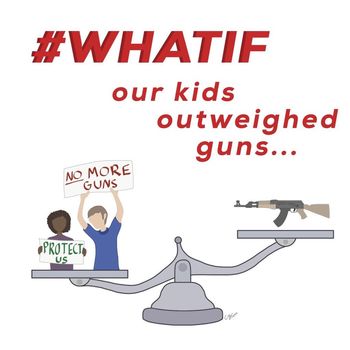Gun culture is ingrained in the United States’ history. At the time of the country’s founding, colonists used guns to instigate violence against Native Americans and African slaves. Many of the wealthiest Americans, including the Founding Fathers, were land speculators who funded expeditions to acquire land by forcibly removing Native Americans. Further, slave patrols – one of the first policing institutions in the nation – involved volunteer militias of white men monitoring African slaves.
During the Civil War era, the mass production of firearms began in earnest. As technology improved and guns became more affordable, personal ownership of guns became more common. The militarism and racism prevalent during this time fueled gun culture and a culture of violence in the United States.
Since the mid-twentieth century, mass shootings have occurred with disturbing frequency in workplaces, schools, and public places.
In response to the assassinations of President John Kennedy, Attorney General Robert Kennedy, and Dr. Martin Luther King Jr., the Gun Control Act was passed in 1968. It banned guns that have “no sporting purpose,” established a minimum age of 21 years old for gun purchasers, prohibited felons and mentally ill people from owning guns, and required all manufactured or imported guns to have a serial number. In 1986, the Firearm Owners Protection Act was passed to enact a variety of protections for gun owners.
In 1992, Bill Clinton was elected, and both parties included gun control in their platforms for the first time in three election cycles. The “Brady Bill,” which expanded background checks for gun purchasers, was passed in 1992. Then, in 1994, Congress passed a ban on assault weapons. However, when the administration changed in 1996, Congress pressured the Center for Disease Control (CDC) to stop researching gun violence. In 2004, the ban on assault weapons expired. There hasn’t been any major gun control legislation passed at the federal level since 1994.
In 2008, District of Columbia v. Heller overturned a neary 70-year precedent to establish that the Second Amendment applies to personal gun ownership.
One of the most prominent opponents of the gun control movement is the National Rifle Association (NRA). The NRA, founded in 1871, lobbies, raises money, and prepares field campaigns to influence policy making in Washington, D.C., and every state. The NRA publishes a report card, from A to F, for every political candidate. Although the NRA wasn’t always opposed to gun restrictions, now it funnels resources to oppose any gun control legislation or judicial decision.
Most recently, the shootings in Orlando, Florida; Las Vegas, Nevada; and Parkland, Florida have drawn attention to gun issues on the national stage. Groups across the country are challenging the NRA’s influential position in Congress and demanding comprehensive common sense gun law reform. Students, in particular, have become active leaders in this movement.
Recently, the movement has gained momentum following the shooting at Marjory Stoneman Douglas High School in Parkland, Florida, where 17 students died. Since the tragedy, there have been several walkouts and demonstrations, some of the largest student led demonstrations in the United States’ history.
The gun control movement often faces opposition from the NRA, which uses its resources to back anti-gun control candidates and lobby Congress (including $11.4 million dollars spent in campaign ads for Donald Trump). The NRA propagates the narrative that gun control activists are working to revoke Americans’ right to bear arms and actively endorses the idea that armed security guards will prevent school shootings. Ironically enough, Vice President Mike Pence is slated to speak at the upcoming May 4th NRA Convention and all firearms will be banned, as per Secret Service order. Parkland student activists, amongst many others, find this hypocrisy more than mildly offensive.
Numerous corporations have cut ties with the NRA, including Enterprise, Hertz, Alamo, MetLife, Delta Airlines, United Airlines, and, most recently, outdoor sports company Yeti. The NRA responded with an email to its members saying Yeti should be "ashamed" and "they are declining to continue helping America's young people enjoy outdoor recreational activities."
In March, the U.S. Department of Justice began efforts to ban bump stocks, which enable guns to fire at nearly the rate of a fully automatic machine gun.

